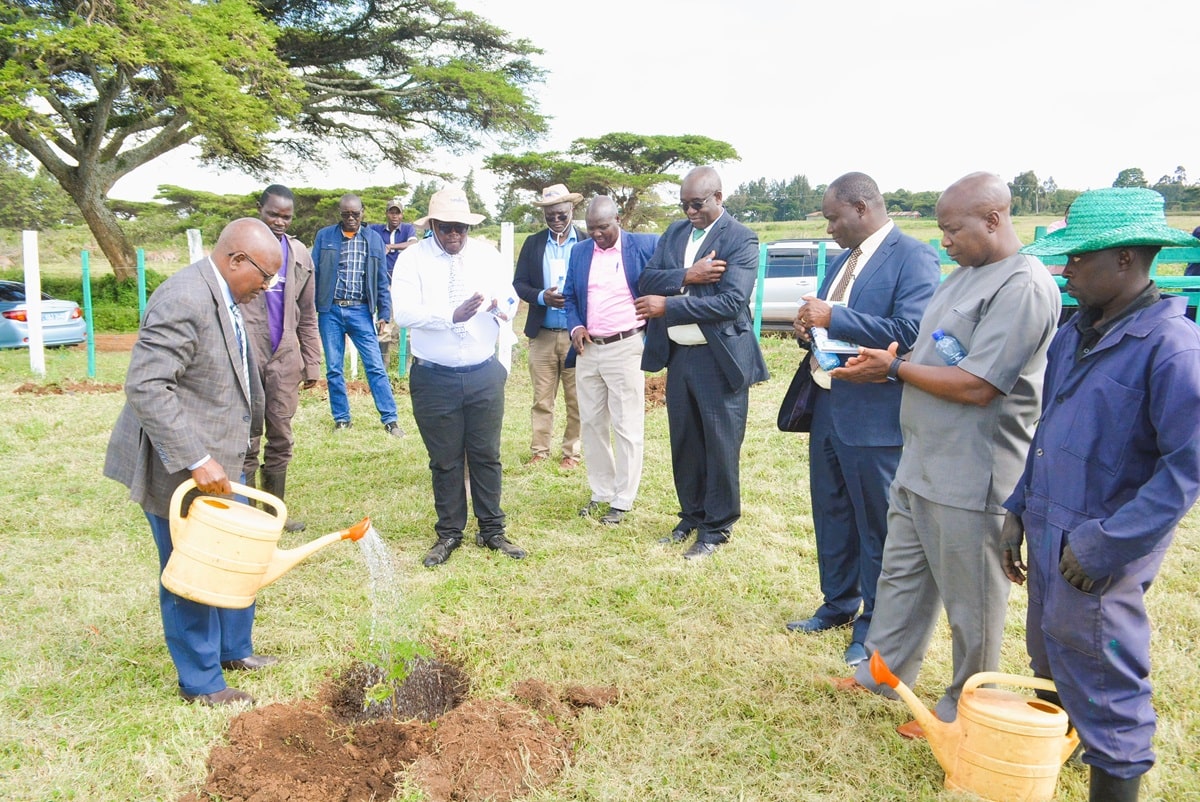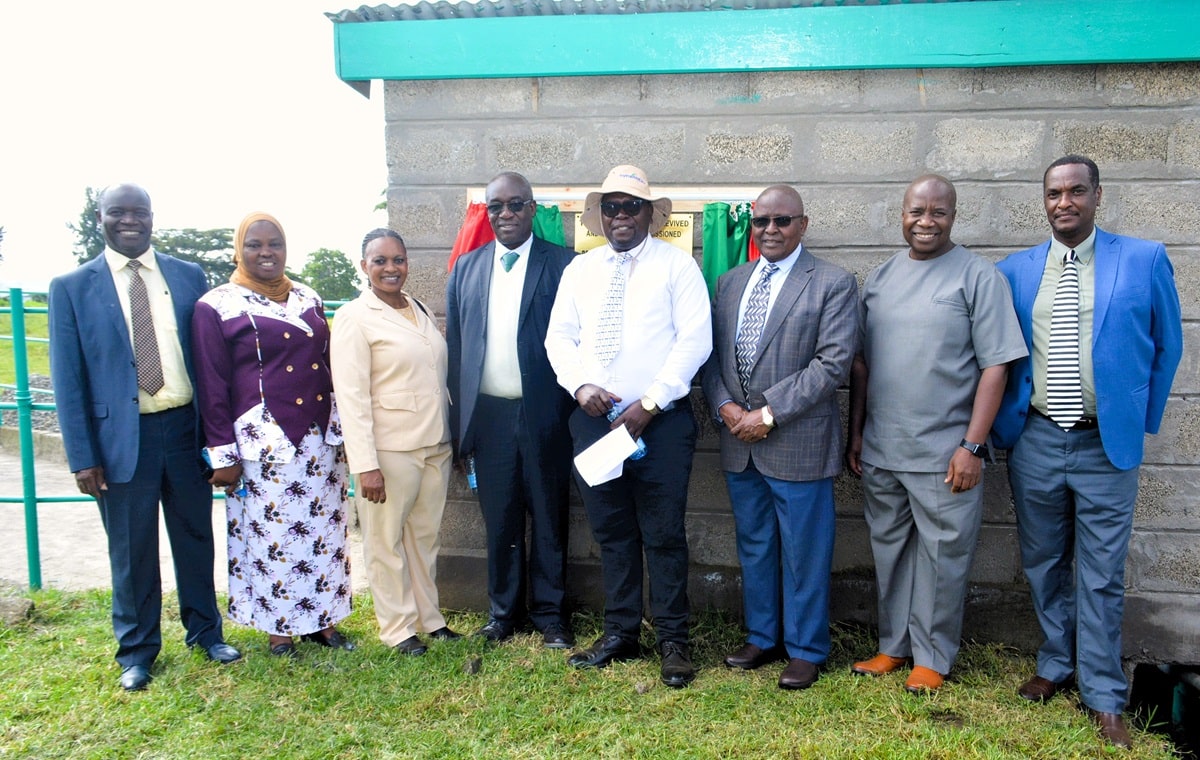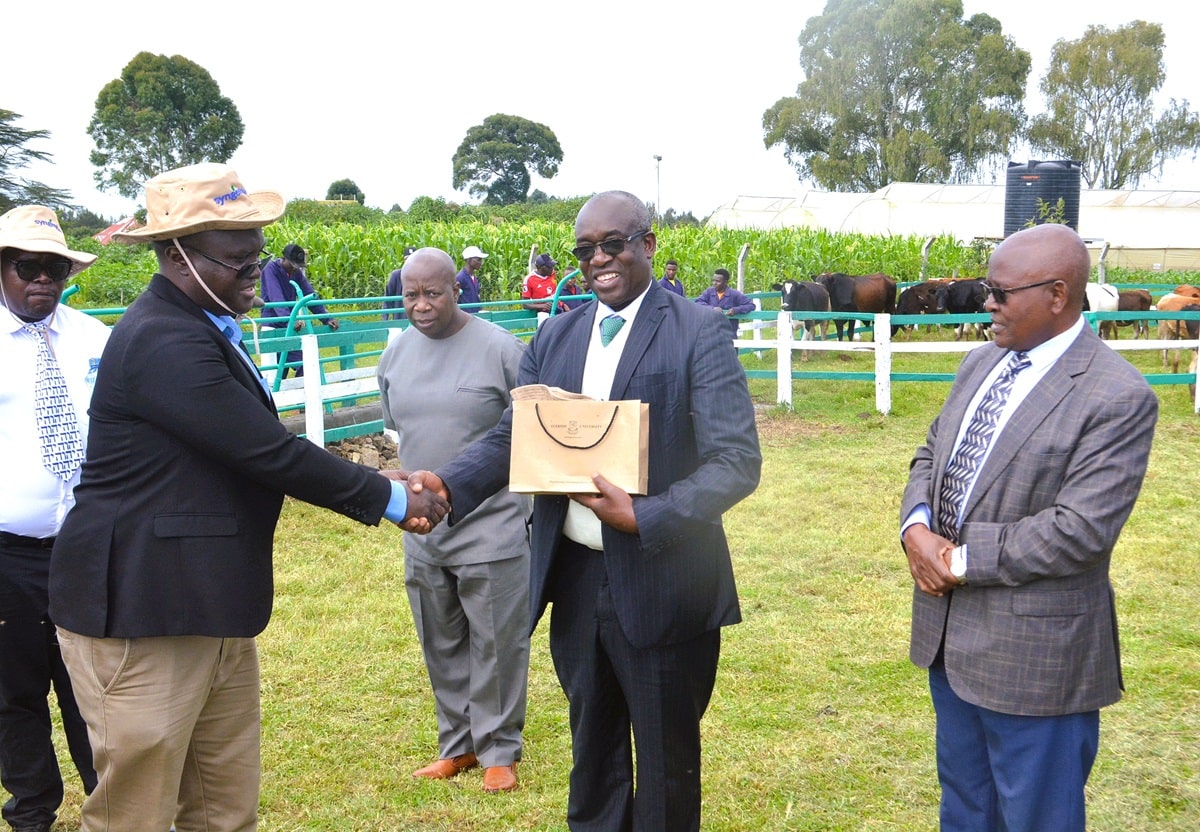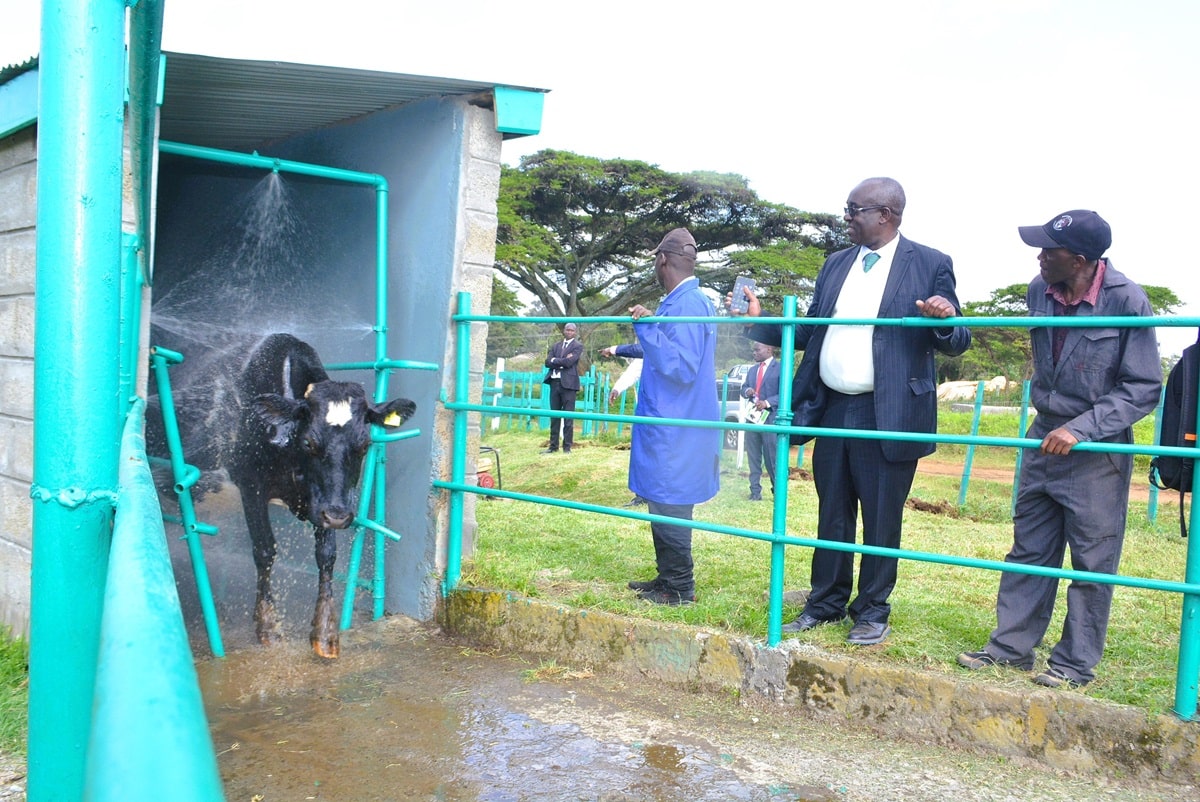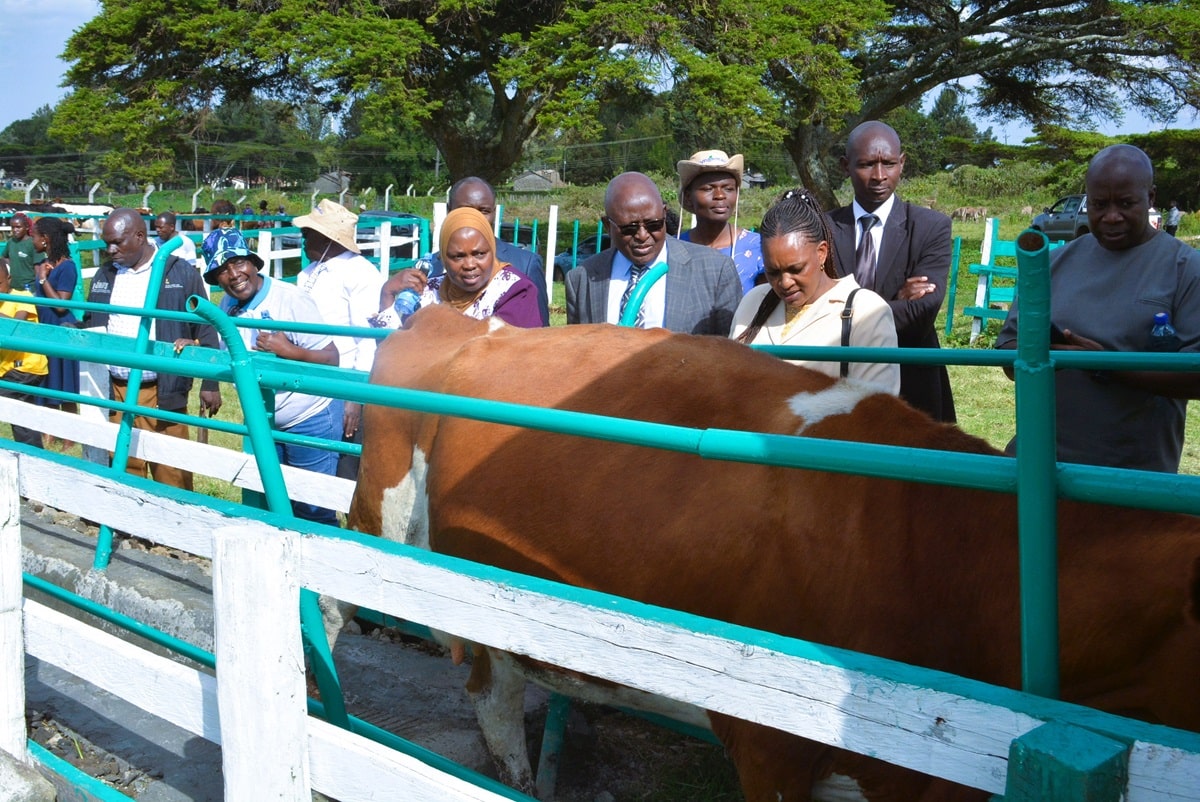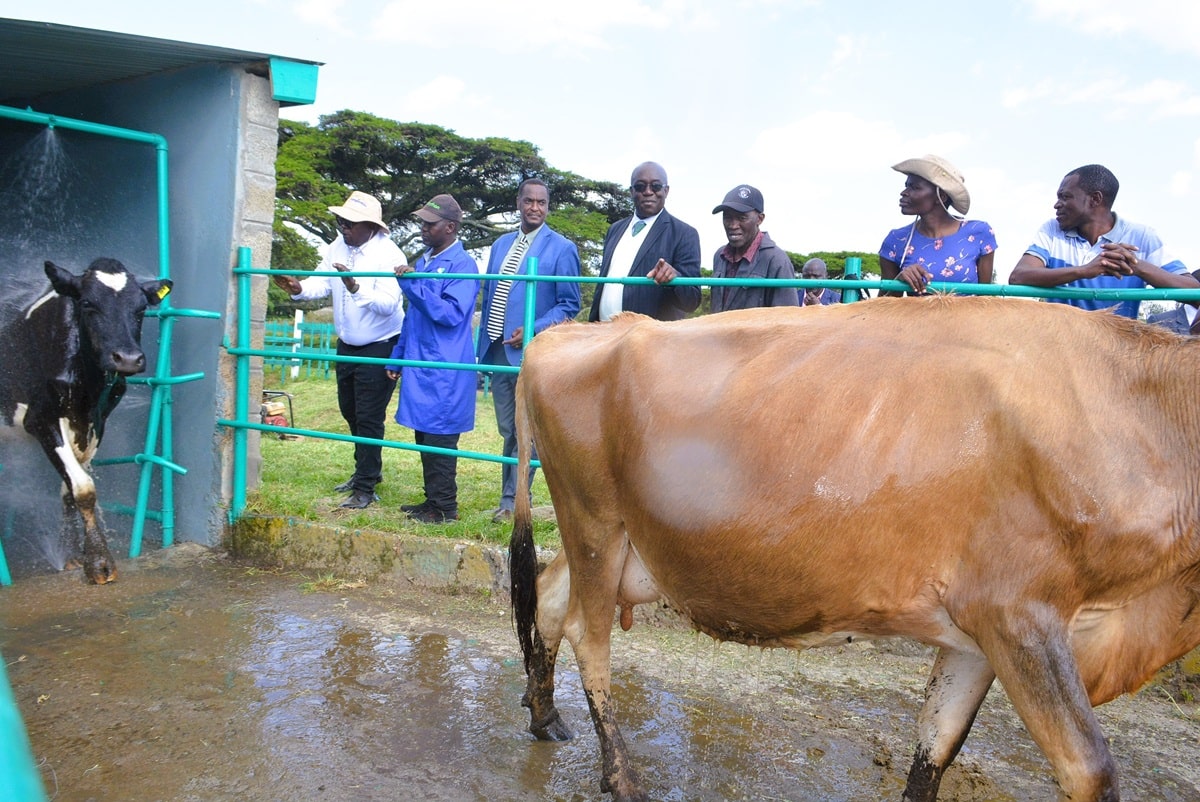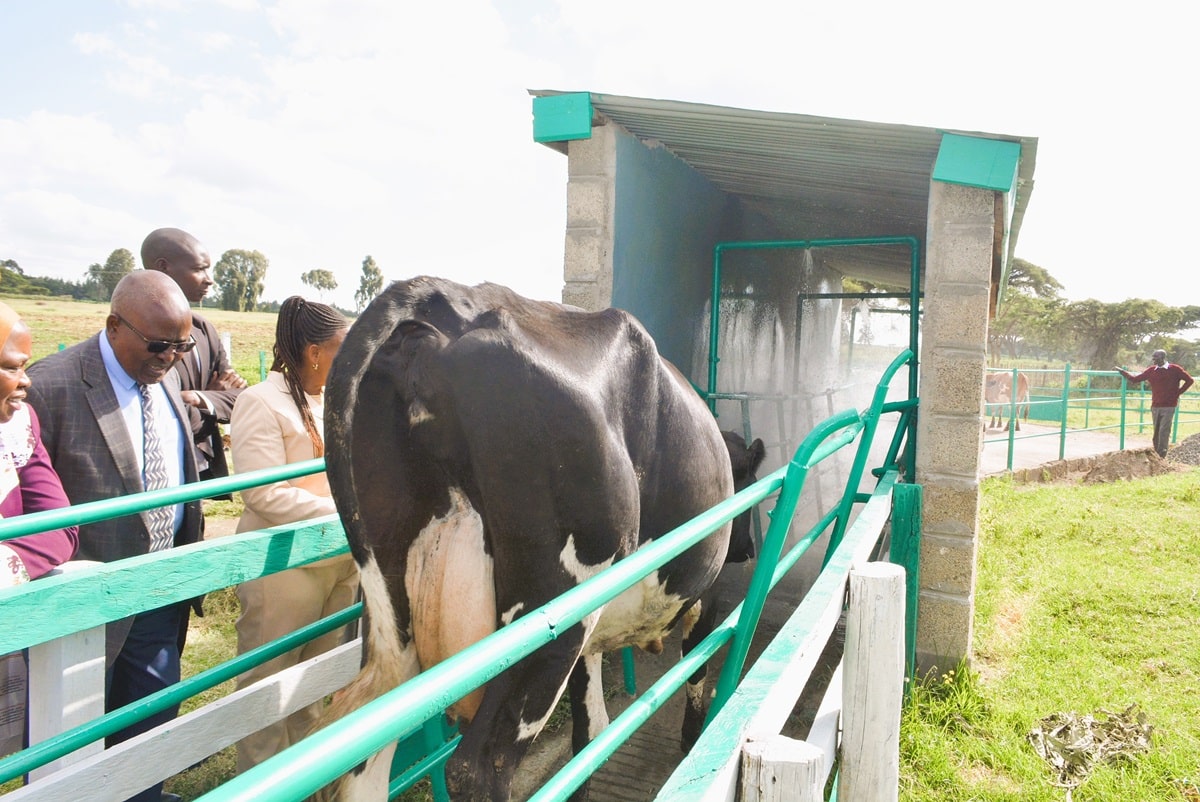By KURIAN MUSA
Egerton University has launched a fully refurbished spray race at Tatton Agriculture Farm. The facility is a major boost to livestock management and student training. It is expected to help combat tick-borne diseases and strengthen hands-on learning.
The launch was led by Vice Chancellor Prof. Isaac Kibwage. He was accompanied by Deputy Vice Chancellor Academic Affairs and Research Prof. Benard Aduda and Acting DVC Administration, Finance and Planning Prof. Richard Mulwa. The event marked a renewed focus on agricultural excellence.
"Congratulations team Tatton!" said Prof. Kibwage during a routine tour of the farm. He praised the revival of the spray race but did not shy away from pointing out past failures. "The farm had been condemned. It was run down due to poor management,” he said. “The former manager, though an agricultural specialist, did not offer prudent and professional guidance. It has cost the university resources to restore this spray race.”
He urged current staff to be responsible stewards. “Use university resources well, just like you would in your own home,” he advised.
Tatton Agriculture Farm is the main teaching farm for the Faculty of Agriculture. It gives students real-world training in livestock and crop production. The refurbished spray race is expected to control tick infestations, which are common during rainy seasons.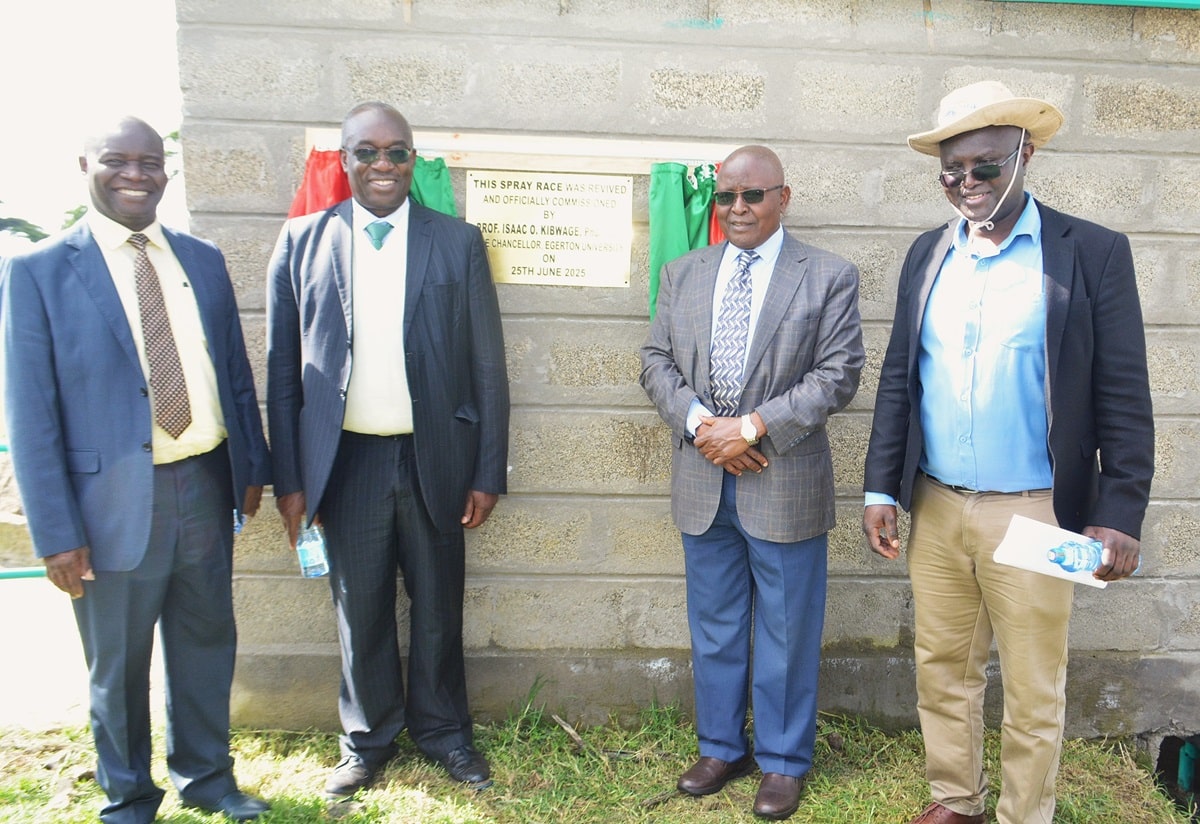
The upgraded facility is a leap forward. It is automated and efficient. It uses small amounts of acaricides, reduces labour, and limits physical strain. The solution is also recyclable and can last up to three months before being replaced.
“The spray race can handle over 1,000 cows per hour,” said one of the farm’s technicians. This makes it faster and safer than manual or traditional cattle dipping, especially for calves, sick animals, or those in calf.
According to the farm’s veterinary staff, treating tick-borne diseases is expensive. “East Coast Fever treatment alone can cost between KSh. 4,500 to KSh. 5,500 per animal,” he noted.
Dr. John Nduku Masani, Dean of the Faculty of Agriculture, said the spray race will benefit both learning and farm operations. “It ensures better animal health and enhances the training experience for students,” he stated. He also thanked Farm Manager Gerald Areba for routine maintenance and efforts to restore the spray race.
Prof. Nzula Kitaka, Director of Marketing and Resource Mobilization, praised the facility. “This is a visible and strategic investment,” she said. “It enhances our image and capacity for teaching and outreach.” She also suggested a commercial aspect. “We can allow farmers near the university to use it for a small fee. That way, we reduce reinfestation and support community safety.”
Prof. Aduda recalled the challenges faced during Agricultural Society of Kenya (ASK) shows. “Our cattle suffered from tick-borne illnesses due to poor spraying infrastructure,” he said. “That experience was a wake-up call. This renovation was long overdue.”
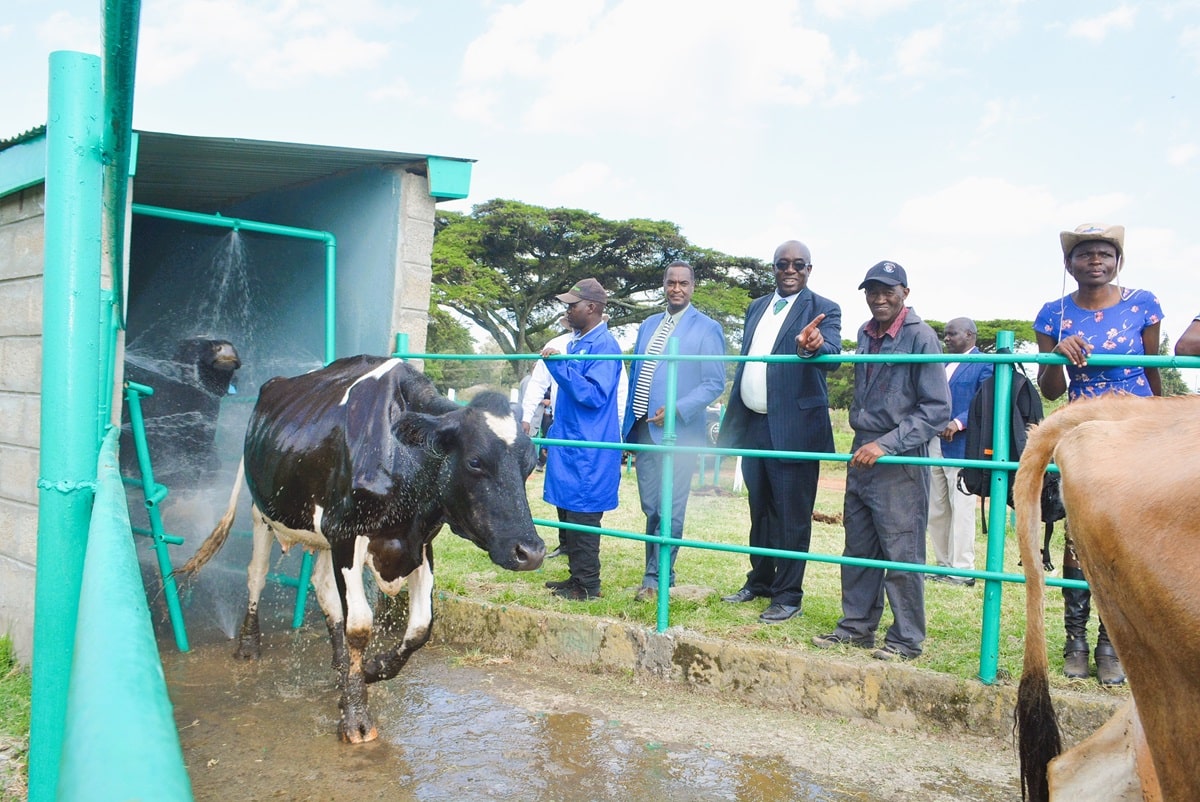
Spraying is now part of the farm’s weekly routine. A fresh stock of approved acaricides has been procured. Staff and students are also trained in proper usage, bridging theory and practical learning.
Egerton’s move reflects national efforts. In places like Tinderet, county governments have revived cattle dips to help local farmers. Healthy livestock leads to better productivity, high-quality dairy and beef, and improved farmer incomes.
The refurbished spray race is more than a structure. It symbolizes Egerton’s continued dedication to innovation, excellence, and community service. It is a promise of healthier livestock, smarter students, and a stronger agricultural future.



